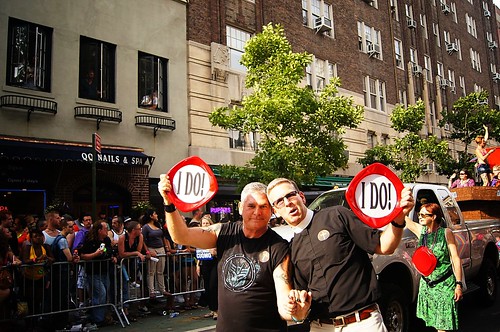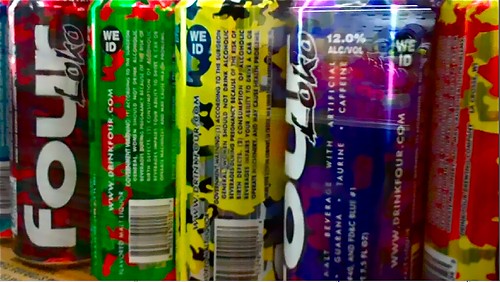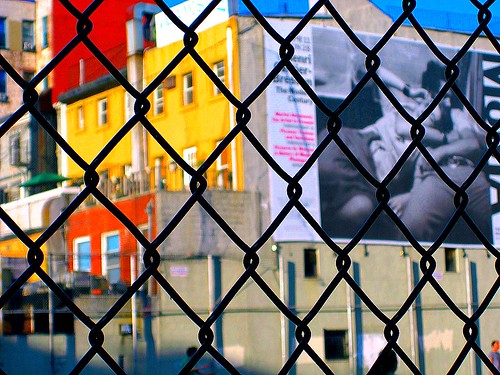 Noah Fecks
Noah FecksThe first New York Oyster Week, celebrating our city’s special history with the salty bivalve while examining preservation efforts, is upon us. Until Sat. 29, there’ll be “oyster-centric” events in and around the city. But these East Village oyster specials can be had year-round.
Mermaid Inn
96 Second Avenue, near Fifth Street; (212) 674-5870
At this neighborhood fixture, you can pledge allegiance to the East Coast or West Coast: Barcat oysters, from the east, are offered for $1 each while Chefs Creek oysters, from the west, are $1.75 each during the “Happy Hour and a Half”: Monday through Thursday from 5.30 p.m. to 7 p.m. and Friday through Sunday from 5 p.m. to 7 p.m.
Desnuda – Winebar & Cevicheria
122 East Seventh Street, near Avenue A; (212) 254-3515
It’s happy days at the Bourgeois Pig’s dark and sexy sister bar, which serves Beau Soleil oysters on the half shell with ginger shallot, relish and chipotle mignonette, Sunday from 2 p.m. to midnight and Monday 6 p.m. to midnight. Order a glass of wine from their selection of South American varieties and you can get a dozen oysters for $1 each. Read more…
 Vivienne GucwaSupporters of same-sex marriage during a parade last month. An anticipated spike in business for wedding planners, florists and others because of the new law has so far failed to materialize.
Vivienne GucwaSupporters of same-sex marriage during a parade last month. An anticipated spike in business for wedding planners, florists and others because of the new law has so far failed to materialize.The legalization of same-sex marriage in New York meant many things to many people. It meant freedom to marry for lesbian and gay couples who had been waiting to do so in their home state. It meant a landmark civil rights victory for New York legislators. And to many in the wedding industry, it meant cash.
But they may have seen the dollar signs a bit too soon.
There were 659 marriage licenses issued to same-sex couples who wed on Sunday, the first day that the law was put into effect, but those numbers have not led to a bump in profits.
Wedding planner Jeannie Uyanik, executive director of C&G Weddings, thought that the expectations of business owners were overblown from the outset, making the lackluster increases seem even more disappointing.
“Even before the law was enacted, there were people who were going to get married no matter what. It didn’t matter if they had to go to Canada or Amsterdam or Massachusetts: where there’s a will there’s always been a way,” Mrs. Uyanik said. “This in and of itself is not going to change the wedding industry. There’s going to be that small blip — probably of just a year — but at that point its really going to normalize.”
Read more…
 Chelsia Rose Marcius An image of a store shelf at the Houston Village Farm on the corner of First Avenue and Fourth Street featuring the banned version of the caffeinated alcoholic beverage Four Loko.
Chelsia Rose Marcius An image of a store shelf at the Houston Village Farm on the corner of First Avenue and Fourth Street featuring the banned version of the caffeinated alcoholic beverage Four Loko.Along the left-side wall of a bodega on Avenue B stands a row of glass door refrigerators, stocked with an assortment of alcoholic beverages from bottles of Budweiser to cans of Coors Light.
Three shelves down in the first fridge, there’s also another beer-like brew — Four Loko, the caffeinated alcoholic beverage that created a buzz before it was banned last year in several states, including New York.
The manager of this minimart — who spoke only on the condition of anonymity for fear of losing his job — said he knows it’s “illegal” to sell this version of the drink, an alcohol and caffeine combo that was manufactured by Phusion Projects last year before the company reformulated the product to eliminate caffeine. Yet more than seven months after the December 2010 ban took effect, several East Village establishments continue to sell the old Four Loko, a top selling brand name that brings some small businesses big bucks.
The Local visited 39 East Village establishments along Broadway, Third Avenue, Second Avenue, First Avenue, Avenue A, Avenue B, Avenue C and Avenue D. Of these, 26 sold the new, non-caffeinated Four Loko.
However, five stores — Le Basket, 683 Broadway; Houston Village Farm, 61 First Avenue; 1st Ave Village Farm & Grocery, 113 First Avenue; Village Magazine, Cigar & Gourmet Food, 102 Second Avenue; and 21 Produce Corp., 21 Avenue B. — were still selling the banned product, as of Thursday.
Read more…
 Michelle Rick
Michelle RickCities are unforgiving places, and New York perhaps the least forgiving of all.
One of its less attractive traits has always been its self-mythologizing triumphalism and I ♥ NY campaigns, a localized form of the nationalism it derides in the rest of the country. “If I can make it there, I’ll make it anywhere,” Frank Sinatra sang in what has become Manhattan’s unofficial national anthem and New Year’s rallying cry. It’s a sentiment to which countless scrambling citizens still subscribe. If they can just work hard enough, be ingenious and ruthless enough, they too will be “king of the hill / Top of the heap,” because this is the place. Or so we like to think.
Is it, though? Just over a century ago, C.P. Cavafy (1863-1933), an enduringly popular Greek poet who lived in Alexandria, Egypt, wrote a 16-line poem called “The City” which immortalizes a peculiarly urban dilemma whose outlines disenchanted New Yorkers will readily recognize. Those who have just moved here should read the poem, memorize it, print it out, and stick it on the fridge door.
Read more…







